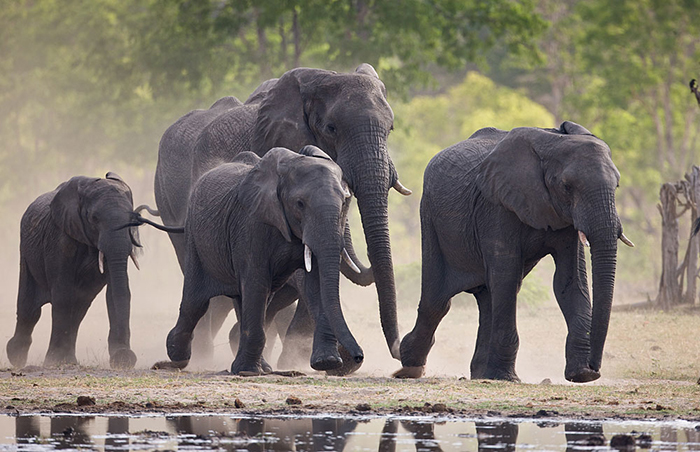

More than 20 international animal welfare organisations say they hope that Zimbabwe will never again capture young elephants for export.
The statement, released on Friday, includes signatories from the Society for the Prevention of Cruelty in South Africa as well as some of the world’s best known animal activist groups.
Last weekend 24 semi-tamed elephants, mostly five to seven years old, which were captured eight months ago in Hwange National Park, left Harare in a chartered aircraft for the Chimelong Safari Park, in Guangzhou, southern China.
Saviour Kasukuwere, Environment minister since 2013, but promoted to a more senior cabinet position this week, and who managed the sale of the youngsters, said, on advice, he had ensured that they were tamed so they would have a less traumatic journey, and that they would return to Zimbabwe in about five years.
He confirmed they had been sold, and said he needed the income for the Parks and Wildlife Management Authority, saying it was short of revenue since the US cancelled trophy hunting in Zimbabwe and Tanzania.
Most US hunters who used to operate in Zimbabwe have now moved to South Africa as they cannot take their trophies from Zimbabwe home with them any longer.
The statement from the welfare organisations says that a previous shipment of four calves from Zimbabwe to China in 2012 saw only one survive after two months in captivity.
- Chamisa under fire over US$120K donation
- Mavhunga puts DeMbare into Chibuku quarterfinals
- Pension funds bet on Cabora Bassa oilfields
- Councils defy govt fire tender directive
Keep Reading
It also says while there were appropriate Cites (Convention on International Trade in Endangered Species) certificates for the export of the young elephants, and that their removal would not be detrimental to the wild elephant population, Zimbabwe failed to provide details “on how these calves were selected and removed from the wild, and has not acknowledged the effect these removals may have on the complex social structure of wild elephants.
“Despite claims that these captures will generate revenue… the capturing of juvenile elephants from the wild and exporting to countries with a history of poor captive animal welfare has no demonstrable conservation benefit… and the exports may damage Zimbabwe’s reputation in a way that will have direct negative effects… tourists are increasingly making ethical decisions regarding future travel destination”
It said Zimbabwe’s SPCA had requested access to the confined calves in March to assess their welfare but had received no response from the government.
It asks for the government to “reconsider its elephant policies, suspend cruel disruptive and unnecessary exploitation, and explore, instead, more sustainable strategies for conservation income generation and (humane) methods of elephant population control”.
Among organisations to sign the statement to the government of Zimbabwe were Born Free USA, Four Paws Animal Welfare Foundation and the International Primate Protection League.
Zimbabwe has far too many elephants in areas like the Hwange National Park, according to ecologists.
Kasukuwere said he hoped that Zimbabwe wildlife supporters would check on the welfare of the young elephants exported to the huge theme park.
— IOL










